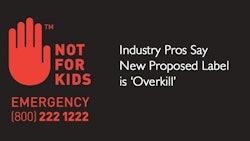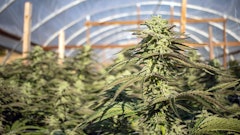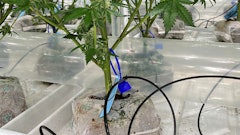
By Ryan Girard
Since the advent of required cannabis laboratory testing in Colorado, a great deal of confusion has surrounded process validation. The rules are vague when it comes to some aspects of process validation but are very detailed in others. As a result, operators across the state have arrived at a wide range of interpretations, and in the absence of further guidance from the Colorado Marijuana Enforcement Division (MED), best practices are far from obvious.
Process validation allows licensed cannabis operations in Colorado to conduct a series of lab tests to demonstrate that their processes yield products that produce clean lab results. In other words, if a marijuana licensee tests all of its output and only obtains passing lab results over a specified period of time, the licensee may be eligible to validate its process.
Once process validation is complete, the operation is exempt from certain testing requirements for one year. This equates to significant reductions in lab testing costs while eliminating the manpower required to collect/deliver samples and aggregate data.
Process validation is broken into a few categories based on product type. Currently, only adult-use (retail/recreational) products may be process validated, though medical testing is expected to go live later this year.
Simple enough, right? Not exactly. Let’s walk through a specific example.
Suppose Weed Company ABC operates an adult-use cultivation center in Colorado. Weed Company ABC is required to test all of its output for contaminants until its process is validated. As such, Weed Company ABC is tasked with submitting Test Batches to the licensed lab of its choice. Test Batches are comprised of Harvest Batches - marijuana that is of the same strain, cultivated using the same cultivation procedures and inputs (such as pesticides and fertilizers), and harvested at the same time.
Further suppose that Weed Company ABC is harvesting a flower room that consists of two strains. The company will produce two Harvest Batches, one for each strain. Weed Company ABC is now faced with a tough question. Should it aggregate the Harvest Batches into one Test Batch or submit each Harvest Batch separately (each as its own Test Batch)? If it chooses aggregation, it only has to pay for a single lab test. However, if that test fails, the entire harvest is at risk. Alternatively, the company may choose to keep the batches separate. While this approach increases testing costs, it also reduces risk exposure in the event of a test failure. Clearly, this isn’t an easy decision.
In the case of process validation, Weed Company ABC is required to test every Harvest Batch for a period of at least six weeks. Those Harvest Batches may be combined into aggregated Test Batches as discussed above. If, after six weeks, the company submits at least six Test Batches and each of those tests are passing, Weed Company ABC has validated its cultivation process.
If there aren’t at least six Test Batches, the company must continue to test until it arrives at six Test Batches. This component is specifically intended to address smaller indoor grows (or outdoor grows of any size) that do not harvest frequently. Without an adequate representation of data, it’s hard to say if the process is actually consistently clean. In these cases, the company has up to twelve weeks to reach the six Test Batch minimum.
Now suppose Weed Company ABC adds a medical cultivation license to the mix. Despite the fact that these plants are grown in the same building, under the same lights, and using the same agricultural inputs, each license must be treated completely separately.
Manufacturers of infused products may also take advantage of process validation. However, each product the manufacturer produces is required to be individually validated. The minimum time required for testing every production batch is four weeks (maximum eight weeks), during which time at least four Test Batches must be represented. If a manufacturer produces both medical and adult-use versions of the same product, each is subject to unique validation.
Once a process is validated, contaminant testing requirements for that product are waived for the following year. However, operators may want to develop a voluntary ongoing testing program. It’s important to perform periodic spot testing to ensure each product maintains the highest level of integrity.
However, if one of these tests falls out of specification you will be required to restart process validation for that specific product. Additionally, if you make a material change to your process, additional tests are required as well. Material changes can include the introduction of a new pesticide (for cultivators) or the use of a different solvent (for product manufacturers), but the scope of this definition is somewhat ambiguous. Operators should err on the side of caution and check with an MED investigator if there are questions as to exactly what constitutes a material change.
Currently, neither the MED nor METRC (the seed-to-sale software in Colorado) provides any formal certifications or designations for process validation. It is the responsibility of the licensee to perform adequate testing and to maintain all associated records in the event of an audit. As a matter of best practice, companies that have completed process validation should include a letter with all product transports with an explanation of the efforts taken to meet process validation requirements.
Without doubt, process validation is a complex and tricky compliance tool. (This article doesn’t even touch on sampling requirements and procedures, yet another layer of complexity.) At the end of the day, the business is required to prove to regulators that the necessary process validation requirements are met.
If your business is exploring process validation, tread carefully and make sure to maintain impeccable records. While process validation might not be a hot topic with regulators today, it’s only a matter of time before it becomes a topic of interest and audits become regular practice.
Ryan Girard is the CEO & Co-Founder of MyComplia.com, marijuana compliance software and a comprehensive process validation tracking tool.

























